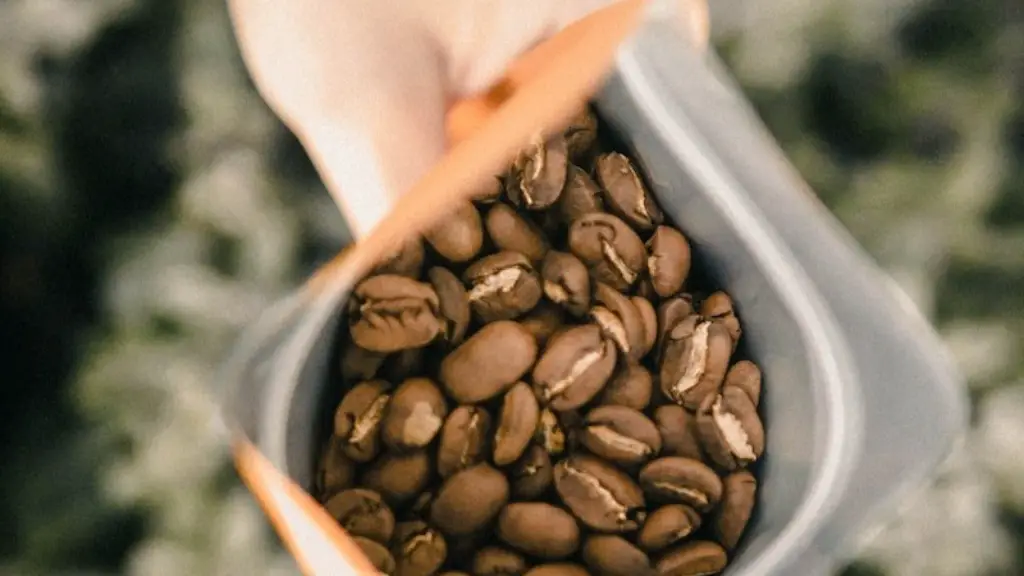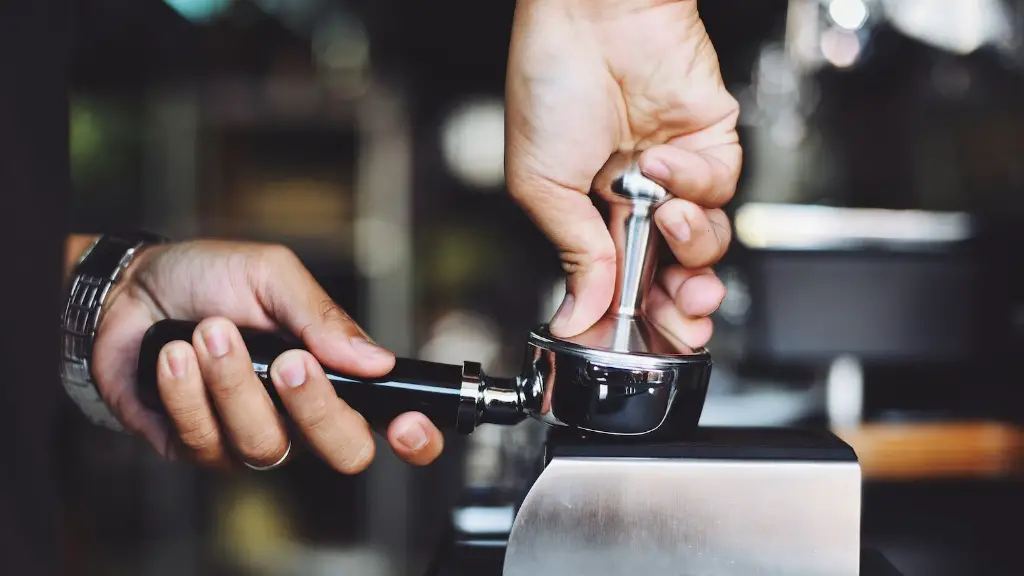The popularity of coffee has only grown over the years, with people all around the world drinking it to boost their energy levels, enhance performance and improve their concentration. While coffee has its benefits, it is also important to be aware of the risks associated with drinking too much or too little coffee. Therefore, it is important to know how much coffee you can drink per day.
Coffee is a cup of brewed coffee beans, with about 2.5 milligrams of caffeine for every ounce of coffee. According to the US National Institutes of Health, the daily recommended dose of caffeine is 400 mg for adults and those of age 18 and above. A typical 8 oz (236 ml) cup of coffee can contain around 95 mg of caffeine, depending on the blend and size of the cup. This means that you can drink up to four 8-oz cups of coffee per day, depending on your individual caffeine tolerance.
Caffeine affects people differently, depending on their lifestyle and health status. For some people, drinking too much coffee can lead to sleep disruption, anxiety, irritability, and gastrointestinal discomfort. Elderly people and pregnant women should also limit their caffeine intake as it may increase their risk of developing heart palpitations, insomnia, and hypertension.
Experts state that the caffeine intake affects people differently depending on the individual tolerance of caffeine. Therefore, it is important to know the amount of caffeine you can handle and adjust your coffee intake accordingly. If you experience any of the above symptoms, it might be time for you to reduce your coffee consumption.
There are several ways to limit your coffee intake. One way is to switch to black or decaf coffee. Decaf coffee has about 10-12 mg of caffeine per cup, compared to 95 mg of caffeine in a regular cup of coffee. It is also important to note that caffeine beverages contribute to increased daily caffeine consumption, so it is important to be aware of the caffeine content in the drinks you consume.
In addition, avoiding adding cream, sugar, and additives to your coffee can help you reduce your caffeine intake. These ingredients boast high levels of calories and trans fats which can increase your risk of weight gain and other health issues. Consuming coffee with these ingredients also makes it easier to drink more coffee than you realise as they mask the bitter taste of the coffee.
Tips For Reducing Coffee Intake
One of the most effective ways to reduce your coffee intake is to drink water throughout the day, as this helps to keep your body hydrated and prevents you from drinking too much coffee. In addition, it is important to limit your coffee intake to one cup per day, as this will help minimize the potential side effects of caffeine. You can also try adding herbs such as red raspberry leaf, oregano, and ginger to your coffee, as these can reduce the bitterness and help with digestion.
Another tip for reducing your coffee intake is to switch to green tea. Green tea has less caffeine than coffee and also boasts a number of health benefits, including improved heart health and weight loss. Furthermore, green tea can also act as an effective alternative to coffee, and it can be easier on your stomach.
Finally, it is important to be mindful of your overall caffeine intake and to actively monitor your caffeine levels. It is also important to recognize when your caffeine intake is affecting your health negatively, and to make adjustments accordingly. Additionally, research shows that drinking coffee in moderation may help improve cognitive functions, reduce the risk of certain types of cancers, and lower the risk of stroke.
Benefits Of Coffee
Consuming coffee in moderation can have a number of health benefits. Coffee is rich in antioxidants which can protect against the development of certain cancers, reducing inflammation, and improving liver health. Furthermore, studies have shown that drinking coffee can also reduce the risk of type-2 diabetes, improve mood, and reduce the risk of Parkinson’s and Alzheimer’s disease.
Coffee has also been found to improve physical performance, as caffeine can stimulate the release of adrenaline, a hormone responsible for giving us a burst of energy and improving focus. Additionally, caffeine has been found to improve alertness and reaction time, increase concentration, and reduce fatigue. Therefore, it is important to be mindful of your consumption, as too much caffeine can lead to unpleasant side effects.
When consumed in moderation, however, coffee can offer a host of health benefits. Studies show that coffee can help protect against heart disease, improve mood, reduce inflammation, and lower the risk of certain types of cancer. Therefore, it is important to be aware of your individual caffeine tolerance and adjust your consumption accordingly.
Myths About Coffee
Despite its potential health benefits, there are still some myths and misconceptions about coffee consumption. One of the most common myths is that drinking coffee will increase the risk of dehydration. However, this is not true, as coffee can actually help to keep your body hydrated. In addition, it is also important to note that coffee does not cause an increase in blood pressure; rather, excessive consumption of coffee can lead to the rise in blood pressure in some people.
Additionally, some people also believe that coffee can cause an increase in anxiety and other mental health issues. However, this is not true; studies show that moderate coffee consumption can actually improve mood and mental clarity. Moreover, there is no evidence that people who consume moderate amounts of coffee are more prone to cardiovascular diseases, as long as they are consumed in moderation.
Another misconception about coffee is that it can lead to addiction. While there is no scientific evidence to support this claim, it is important to be mindful of your daily caffeine intake and adjust your consumption accordingly. In addition, it is important to note that coffee does not stunt growth and does not cause infertility, as long as it is consumed in moderation.
Alternatives To Coffee
If you’re looking for a caffeine alternative to coffee, there are a number of options available. First, tea is a great alternative, as it has less caffeine than coffee but still provides a boost of energy. Additionally, matcha, chai, and green teas can be great options as they boast additional health benefits. Furthermore, there are also a number of herbal teas that are caffeine-free, such as chamomile and ginger, which can be just as flavorful and satisfying.
Another option is a cold brew, which involves steeping coffee grounds in cold or room temperature water for 12-48 hours. The end result is a smooth and flavorful coffee that is much less acidic than traditional coffee. Additionally, there are also many caffeine-free alternatives on the market, such as Chicory Root, Dandelion Root, and Roasted Kale.
Finally, many people choose to supplement their coffee with vitamin-rich beverages, such as smoothies and juices. Including nutrient-dense drinks in your diet can help provide the necessary vitamins and minerals to keep your body feeling energized and nourished. Additionally, these beverages can also help to reduce caffeine cravings and can promote a feeling of fullness.
Conclusion
Drinking coffee can provide a number of health benefits, including improved cognitive function and mood, reduced inflammation, and improved physical performance. However, it is important to be aware of the potential risks associated with excessive coffee consumption. Therefore, it is important to be mindful of your individual caffeine tolerance and adjust your coffee intake accordingly.
In addition, there are also a number of alternatives to coffee, such as tea, cold brews, and caffeine-free alternatives. Finally, it is also important to supplement your coffee with nutrient-dense, vitamin-rich beverages, such as juices and smoothies.





